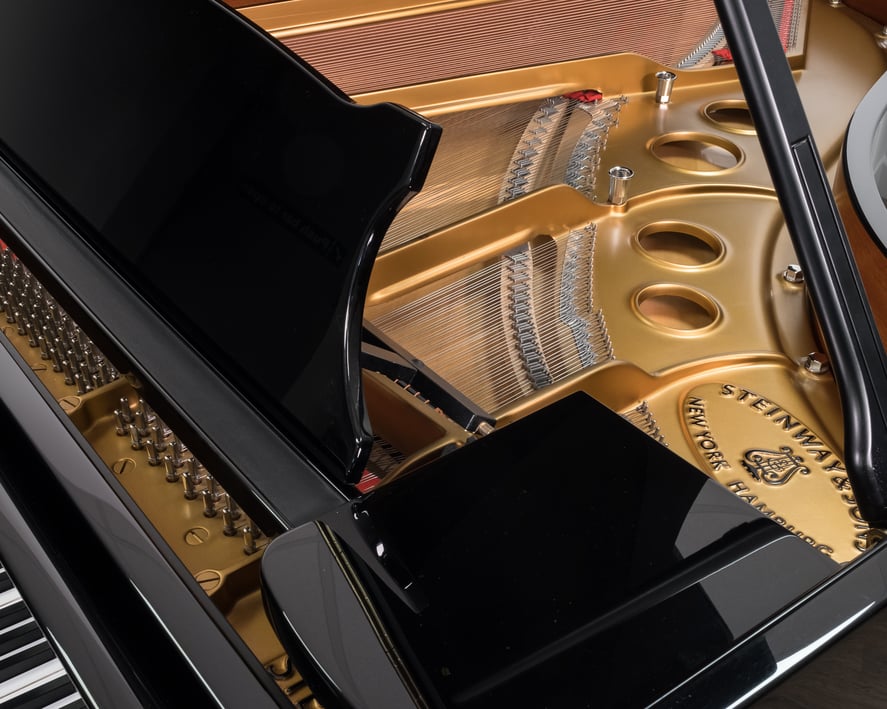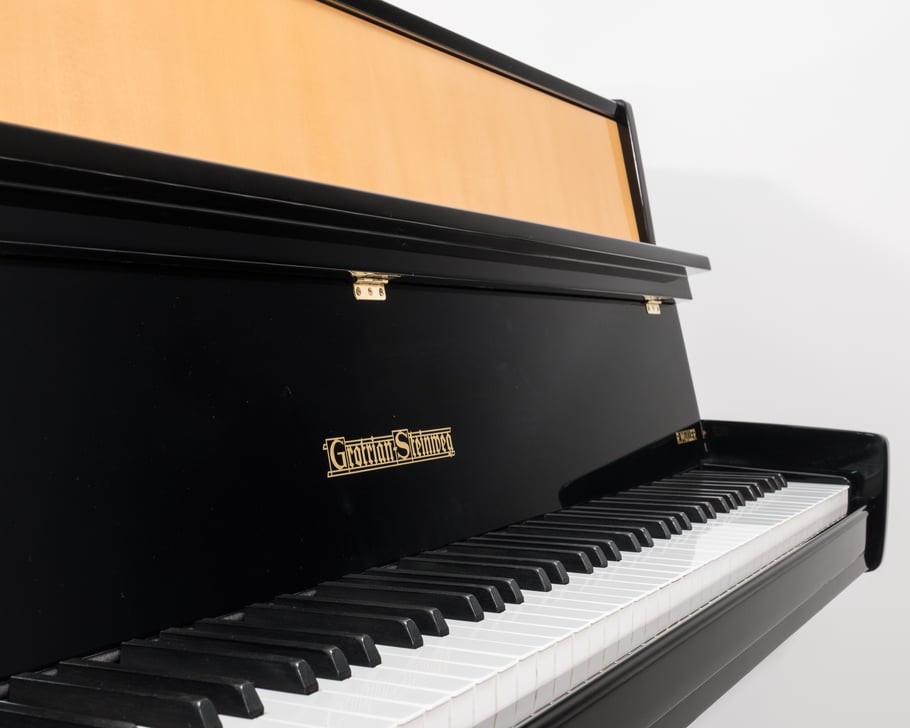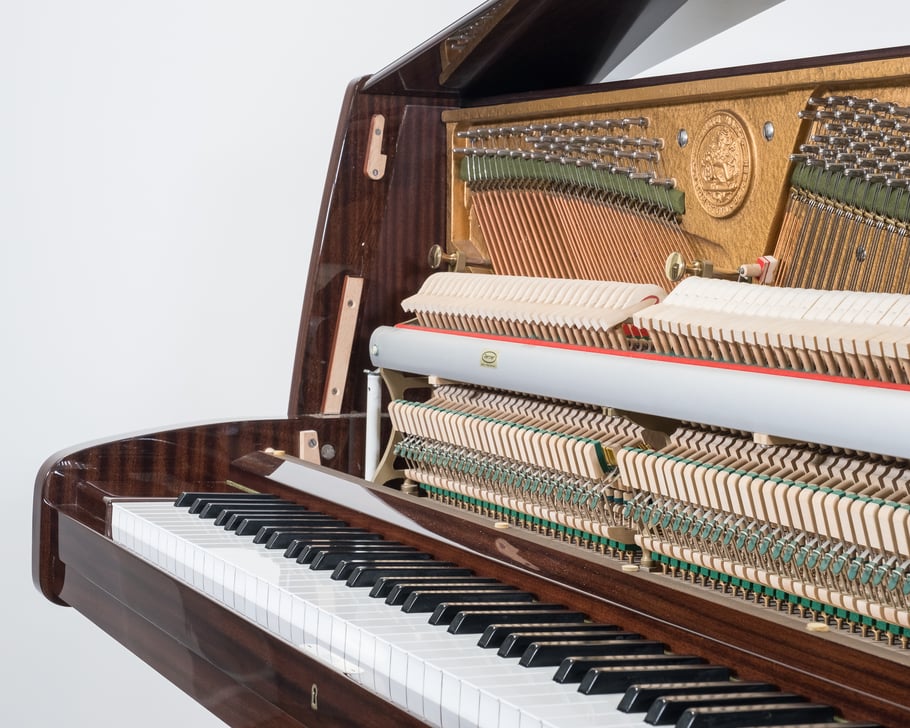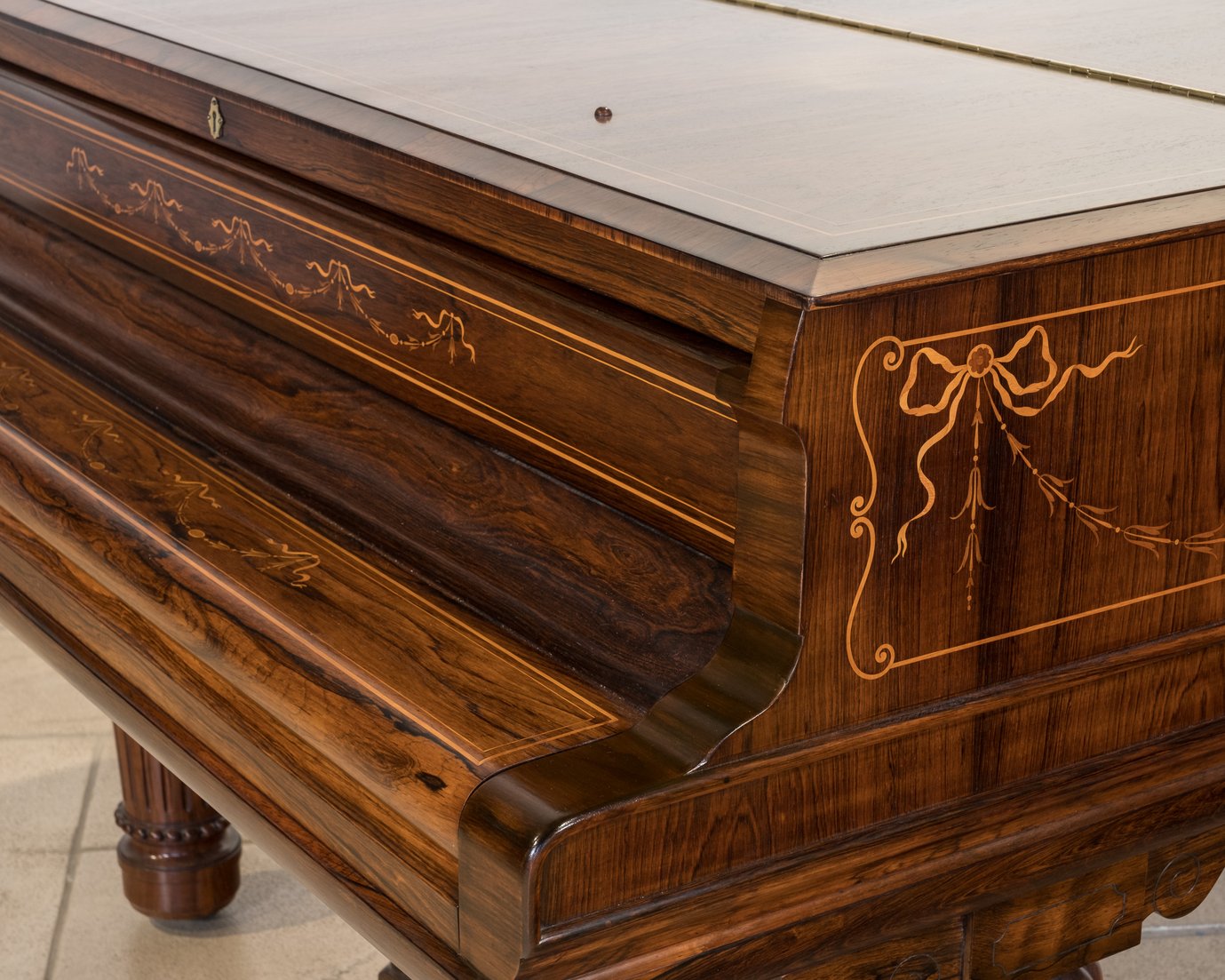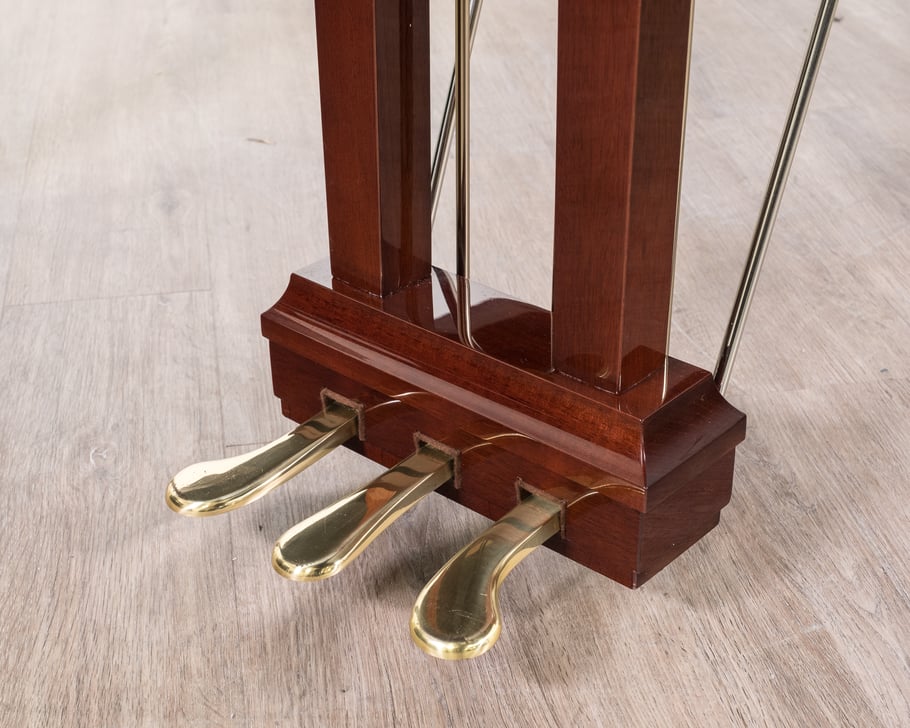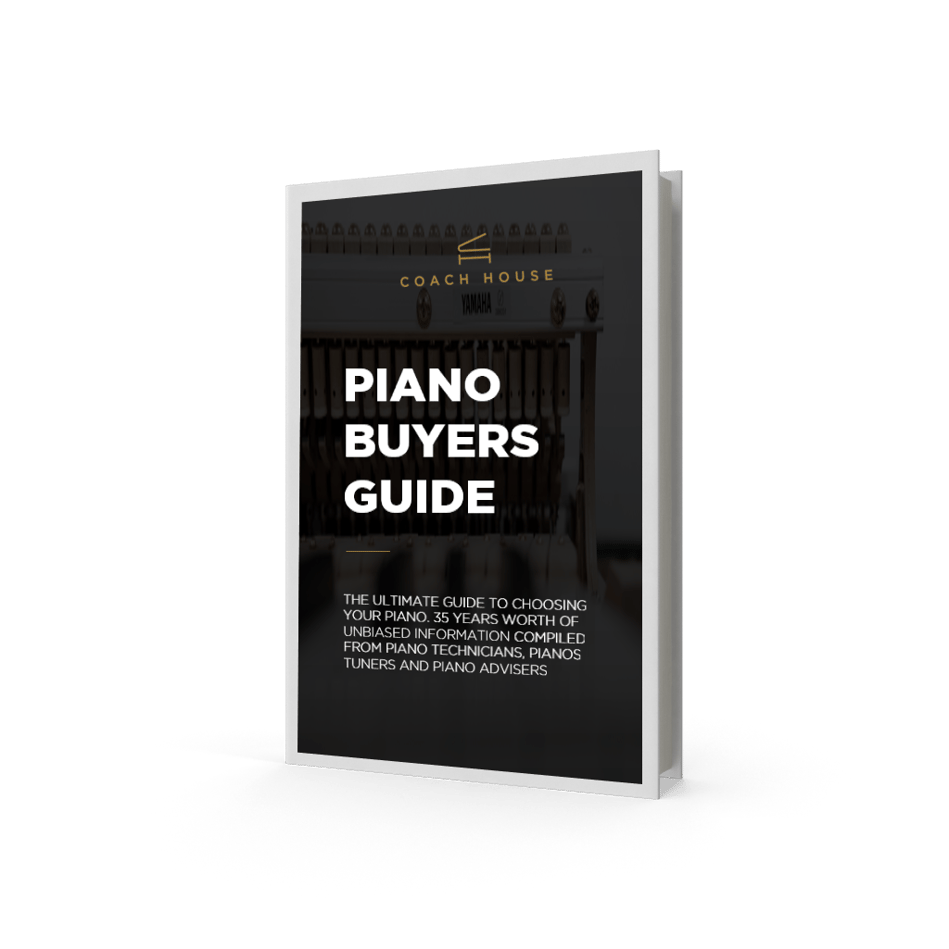A lot of people dream of owning a new piano, but there are significant benefits to buying a second hand piano over a new one!
Buying a Second hand Piano
How do you know what makes a used piano valuable, or not? How does one differentiate between a good investment and a poor one? Coach House Pianos are experts in Piano Valuation and have a thorough understanding of what to look out for in a piano to determine its quality and value.
We understand that you may be apprehensive or concerned about buying a second hand piano, maybe worrying about lack of care or hidden issues and damage. This is completely understandable, and we highly recommend you get in touch with an established specialist like ourselves to advise you on what to look for when buying a second hand piano and help ensure that your investment is a safe one.
In this article, we explore some of the key features and things to be aware of when browsing second hand pianos. Bearing in mind that there are approximately 10,000 moving parts in an acoustic piano, there is a fair amount that could potentially go wrong if you make an uneducated purchase!
The Strings & Soundboard
As you can imagine, the tension of the strings (approximately 18 tons of pressure) has a significant impact on the tuning pins, meaning it takes time for them to become stable and settled in the pin-block (wrest plank). The steel and copper wire strings also require time to stretch and become accustomed to being so taut. These factors mean a pre-owned piano is more stable in terms of its tuning.
The soundboard of the piano is often referred to as the ‘heart of the piano’. It acts as a natural amplifier, conveying the resonance of the string vibrations to create the instrument’s own identity, otherwise known as its ‘tone’. As the wood (typically solid spruce) matures over time, the tone of the instrument becomes richer and warmer, which is generally the tone that the greater proportion of us all love. When buying a used piano you have the advantage that this maturing process has already begun and you will be able to see what the true character of an instrument is as the maturation process is already well on its way.
Secondhand Steinway Model O at Coach House Pianos
The Piano Keys
I’m sure you’ll agree that the keyboard is one of the first things you notice when looking at a piano. It’s a pretty important element!
Secondhand Grotrian Steinweg Upright Piano at Coach House Pianos
Dirty or discoloured keys are not a sign of good health and could point to the piano having been subjected to moisture, cooking grease or nicotine stains. The older ivory keyboards typically go yellow over time and this is due to sweat and dirty fingers over a prolonged period, but also due to the absence of natural light (yes the myth of keeping them covered to stop them from going yellow is incorrect!)
A well-maintained piano will have clean keys and they should feel smooth and even in touch throughout in terms of the key-depth (how far they go down when you play). Keys that get stuck could indicate broken action parts, or swollen felts due to poor climatic conditions. There should be very minor sideways movement of the keys, anything other than this could mean worn key bushings which point to excessive use and potentially a hard life!
Another thing to watch out for are if the keys are uneven, as uneven keys could indicate moth damage to the cloth and felt, or it could be very poor regulation meaning the piano hasn’t been well maintained.
The final thing to check with the keys when buying a secondhand piano is that all the notes play properly and look for any inconsistencies, for example if several notes are noticeably more out of tune compared to others, then it could be a problem with the pin block which is very concerning and extremely costly to rectify.
The Interior
Take some time to inspect the soundboard (the flat wooden panel behind the strings).
Secondhand C.Bechstein Upright Piano at Coach House Pianos
You’ll want to make sure there are not any cracks in the iron frame or the wooden soundboard. This is not always an easy inspection to carry out and really requires an expert to do this.
It is also worth paying close attention to the felts to ensure there is no sign of moth activity i.e. holes or imperfections in the felt. If it is an older instrument you are considering, then it would be prudent to check the casework carefully for any signs of woodworm.
Are the hammers grooved or do they have any flat-spots? These are tell-tale signs of excessive wear so extra diligence is required when considering the purchase of such an instrument.
We would also recommend consulting a piano expert when looking at buying a secondhand piano, to enquire about the best location for a piano in your home. Factors such as central heating and direct sunlight can affect the tuning stability of your instrument and can potentially damage both the interior and exterior cabinet.
A reputable piano dealer like ourselves will be happy to offer advice.
The Cabinet
Secondhand Steinway Model A at Coach House Pianos
When buying a used piano, the condition of the exterior is important to consider as while it may not affect the playability of the instrument, it can indicate how well it has been looked after over the years.
Look out for fading, scratches, dents, loose parts and damaged hinges. It is also worth looking at the pedals – where there are flat-spots, it can indicate considerable usage.
As crazy as it sounds, you should consider the smell of the piano! An unpleasant odour could be caused by mould or damp, which should be an immediate deterrent as this only occurs if the piano has been located in non-suitable climatic conditions.
How does the piano play?
How does the piano sound when you play it? Do all the notes ring on?
If so, there could be an issue with the dampers, whether that be that they have hardened with age or they have broken springs. Either way, dampers (felt pads that stop the strings from sounding continually) are vital and it is imperative they function and are regulated correctly.
Listen out for other rattles or buzzes, particularly looking out for quieter sounding bass notes that are more muted than the rest of the piano.
Make sure to check the pedals too. Creaking or squeaking pedals could indicate problems with internal mechanisms.
Secondhand Steinway Boston 178 Grand Piano at Coach House Pianos
History of the Instrument
Has the piano been well-maintained? Ask about its history and previous ownership. When was it last tuned? How old is it? You can ask for the serial number and look this up for yourself online if you prefer to double check the age. More importantly, does it come with a warranty? Any piano of reasonable quality is a significant purchase so you must ensure you have a suitable guarantee – this is the main reason why it is highly advisable to never buy a piano at auction or from the likes of eBay.
At Coach House, because we know what to look for when buying a secondhand piano, we take time to talk to the previous owners about the maintenance of the instrument we are buying from them, and all pianos supplied by us go through a rigorous workshop process (which we would invite you to come and experience for yourself). This ensures every piano meets our exacting standards which are highly envied throughout the music industry.
Our time-served piano artisans know exactly how to make even the most minor adjustments to maximise the potential of every piano, ensuring it is in optimum condition both acoustically and aesthetically.
Our team are also on hand to offer advice and after-care should you have any questions regarding the condition of your piano, post-purchase.
As you can see, there is a lot to be aware of and understand when purchasing a second-hand piano, however, if you are careful and listen to proven advice, you will undoubtedly be better off both financially and instrumentally by purchasing a pre-owned piano.
Feel free to get in touch to ask further questions to our helpful and friendly team of experts or to arrange a visit to explore our vast range of beautifully prepared second-hand upright and grand pianos.
Would you like to visit us?
Recommended
Articles
The Bösendorfer Porsche Piano: A Masterpiece of ...
Best Yamaha Upright Pianos Guide (2023)
Why We Love Sauter Pianos
Back to Blog


